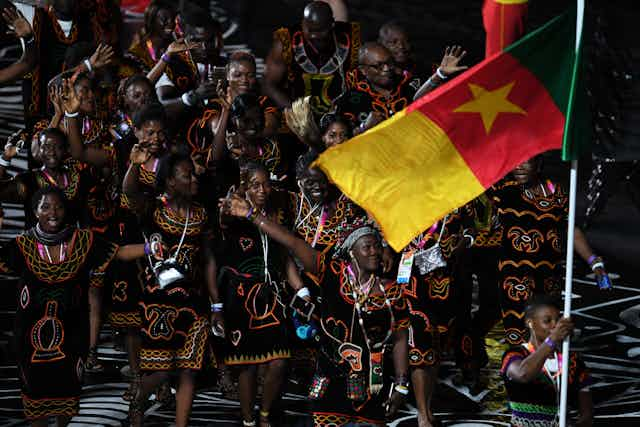The missing Commonwealth Games athletes from Cameroon, Rwanda and Uganda aren’t the first to walk out of an athletes village, even in Australia. At least 26 athletes claimed asylum in Australia at the 2006 Melbourne Commonwealth Games. Two of them, originally from Cameroon, are now representing Australia in these Commonwealth Games.
When large numbers of people attend an international sporting event it can be expected that not all of them will return home. And those who fear ill treatment in their home countries are lawfully able to apply for protection in Australia.
The reality is that host countries are prepared for refugee claims as a byproduct of international sporting events.
While we don’t know the individual cases of the missing athletes, we know that serious human rights abuses are prevalent in Cameroon. There is an ongoing conflict in the north of the country and thousands of refugees have fled to neighbouring Nigeria.
Read more: The case of the lost athletes – when Olympians seek asylum
Games organising committee chairman Peter Beattie has said none of the athletes have breached Australian law:
This happens at every games, it’s no surprise … If there is a breach (home affairs minister) Peter Dutton and his team will deal with it.
Dutton has been firm that if the athletes remain here past May 15 2018, the limit of their temporary visas, they will be detained and removed from Australia.
‘This happens at every Games’
Since the second world war nearly every Olympic Games has had athletes seeking asylum in the host country. Cold War politics made it opportune for Western countries to welcome asylum seekers from Eastern Bloc countries.
The Melbourne Olympics in 1956 saw one of the largest defections of athletes ever, with 61 individuals (mostly Hungarian) deciding not to return to their home countries.
More recently the country of origin of asylum seekers has reflected shifting global conflicts. At the 2012 London Olympics athletes from Cameroon, Sudan and Ethiopia sought refuge.
This is also a reality of other international sporting events in Australia. At the Homeless Persons World Cup in Melbourne in 2008, 15 individuals sought asylum, including athletes from Rwanda, Zimbabwe and Afghanistan.
What happens if they don’t return?
Athletes granted entry to Australia are likely to have visas with conditions limiting the time they can remain in Australia. Those who overstay may become unlawful and face being detained in immigration detention.
Whether they can apply for another visa to remain in Australia depends on the conditions of their visa.
Most Commonwealth Games athletes from African countries will have a “no further stay” condition on their visa. This prohibits them applying for any other visa apart from a protection visa.
The refugee and humanitarian program provides options for people who are in Australia and want to apply for protection (or asylum). Those who apply for a protection visa before their temporary visa expires should be able to remain in the community while Home Affairs considers their case.
Read more: The case of the lost athletes – when Olympians seek asylum
Athletes remaining in the host country for political reasons are often referred to as “defectors”. In international human rights law an individual who is seeking protection is known as an asylum seeker.
Australia has obligations to protect the human rights of all asylum seekers and refugees who arrive in Australia, regardless of how or where they arrive and whether they arrive with or without a visa.
The right to seek asylum is recognised as a fundamental human right. Remaining in Australia and applying for protection is not breaching Australian law. Indeed, Australia has recognised that any person in Australia who has a fear of persecution in their home country can seek protection.
This is in accordance with Australia’s international obligations under the 1951 United Nations Convention Relating to the Status of Refugees and other human rights treaties.
Read more: Explainer: how Australia decides who is a genuine refugee
A refugee is defined as someone who does not want to return to their country of origin owing to a “well-founded fear of persecution” on the grounds of race, religion, nationality, membership of a particular social group or political opinion. The person can also receive complementary protection if there are “substantial grounds for believing that there is a real risk he or she will suffer significant harm”.
Those who apply go through a rigorous assessment process. While no official statistics are available for processing times, experience shows it can often take several years for claims to be assessed.
During that time those who apply for protection are able to live and work in the community. However, having left their home country, they may need assistance and support to find accommodation and work.
The codes of conduct of most sports organisations reflect the spirit of human rights. Those representing their country are proud to do so, and leaving a team must come at great emotional and personal cost. Being an international athlete does not mean a person is impervious to human rights abuses in their home country.
Hosting an international sporting event brings with it significant prestige and honour for the host nation. Respecting the right to seek asylum is an integral part of the example Australia has set in the past and should continue into the future.

